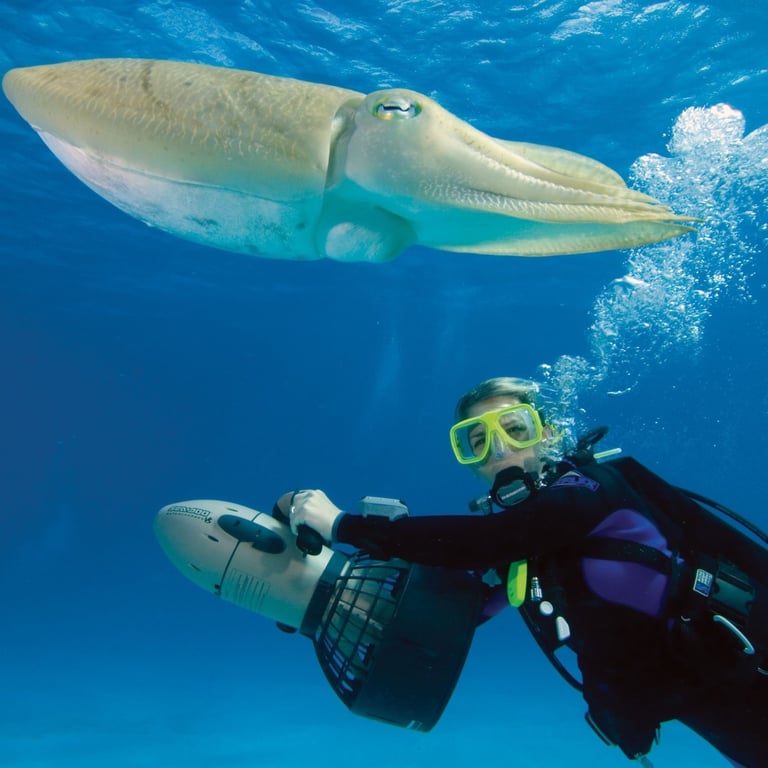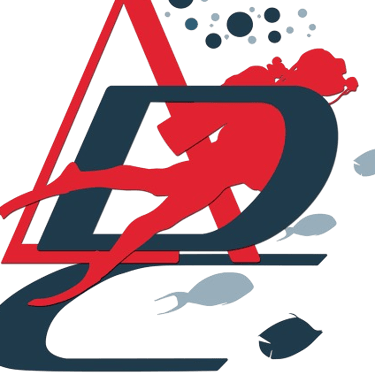✉ info@atlantikdivingcenter.com ☏ +20 10 33128880
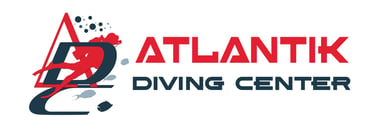
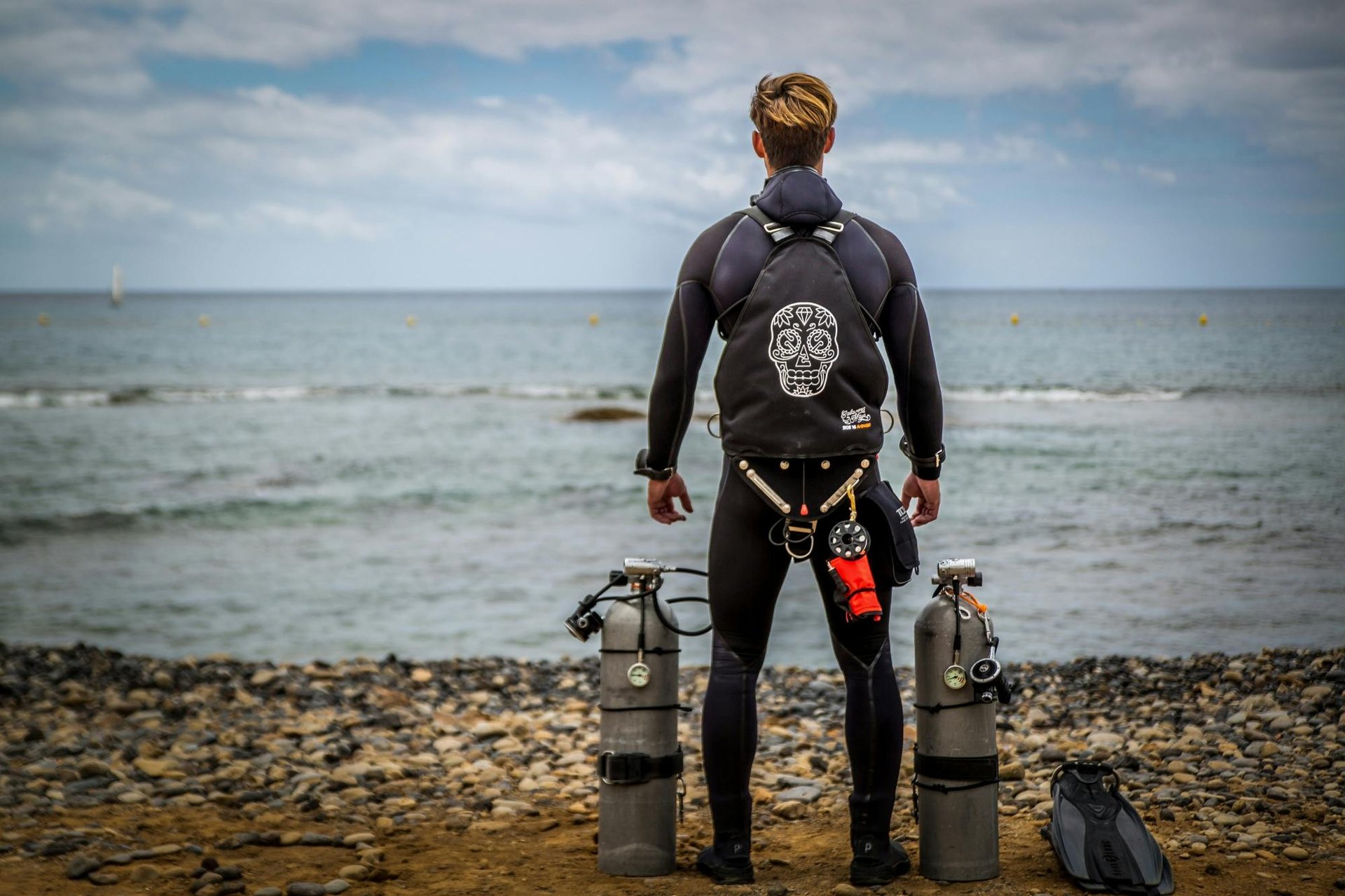

What are PADI Specialty Courses?
A PADI specialty course is a series of dives relating to a specific underwater activity. Courses such as deep diver, wrecked diver, underwater photographer, etc. are all PADI specialty courses.
If you’ve already completed your advanced open water course congratulations! This means you would have completed the first dive of five different PADI specialty courses.
So for example, if you continue your training and complete three more underwater navigation dives, you will have earned your PADI underwater navigation specialty certification.
Complete five PADI specialty diver courses along with your rescue diver course and earned your padi master diver certification. PADI specialty courses are a great way to learn new skills and explore new and exciting things to do while diving.
ENRICHED AIR DIVER
The most popular PADI specialty course. scuba diving with enriched air nitrox gives you more no decompression time, especially on repetitive scuba dives
Enriched air also known as Nitrox is a from breathing gas that’s allows divers to extend bottom time and reduce nitrogen loading.
You also have the option of completing tow open water enriched air dives. this certification counts towards the PADI master scuba diver rating.
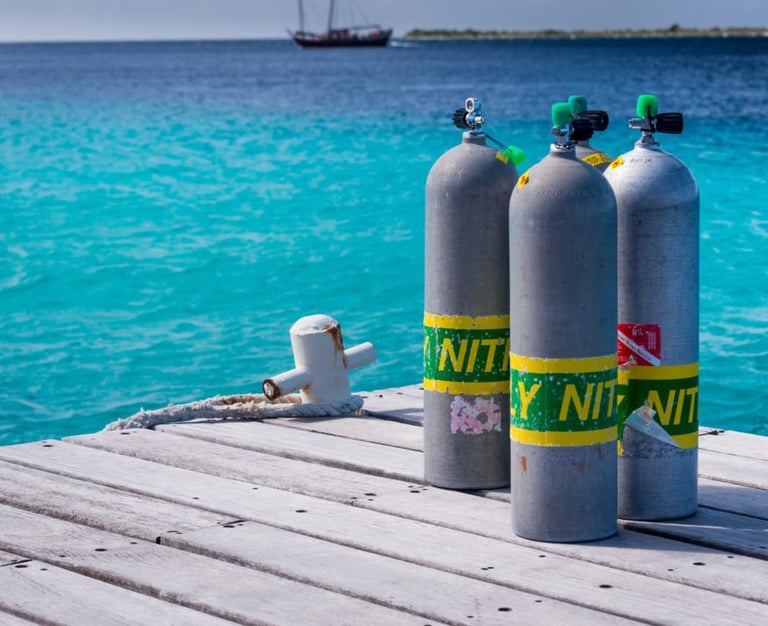

Requirements
Age Requirement: 12 years or older
Duration: 1 Day
Course Prerequisites: PADI Open Water Diver (or qualifying certification)
Diver Medical: Instructors, divemaster's, and dive shop staff are not physicians and should not be asked for medical advice, only medical professionals can give medical clearance to dive. Scuba diving requires a minimum level of health and fitness. Chronic health conditions, certain medications, and/or recent surgery may require you to get written approval from a physician before diving.
To avoid disappointment, download and review the Diver Medical Form to ensure you won’t need a physician’s approval to dive before enrolling in a scuba course.
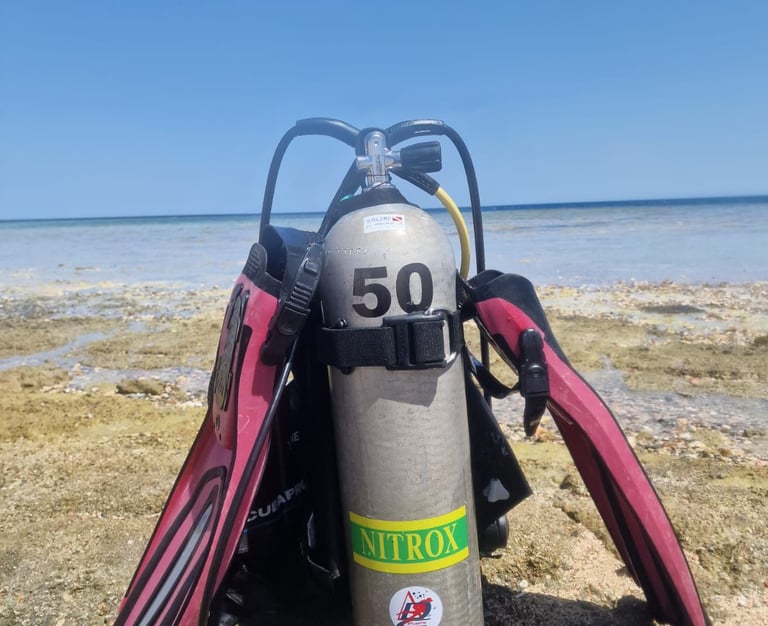

DEEP DIVER SPECIALTY
Explore deeper dive sites with confidence at depths down to 40 meters/130 feet. learn to manage your gas supply, go over buddy contact procedures, and buoyancy control
The lure of the deep, there’s something exciting and mysterious about deeper dive sites while scuba diving sometimes it’s a wreck that attracts you below 18 meters, and on wall dives it may be a giant fan or sponge.
Whatever its. to scuba dive with confidence at depths down to 40-meter toy should take the PADI deep diver specialty course this certification counts towards the PADI master scuba diver rating


Requirements
Age Requirement: 15 years or older
Course Prerequisites: PADI Advanced open water Diver (or qualifying certification)
Duration: 4 Dives in approximately 3 days
Equipment: Excluded
Diver Medical: Instructors, divemaster's, and dive shop staff are not physicians and should not be asked for medical advice, only medical professionals can give medical clearance to dive. Scuba diving requires a minimum level of health and fitness. Chronic health conditions, certain medications, and/or recent surgery may require you to get written approval from a physician before diving.
To avoid disappointment, download and review the Diver Medical Form to ensure you won’t need a physician’s approval to dive before enrolling in a scuba course.
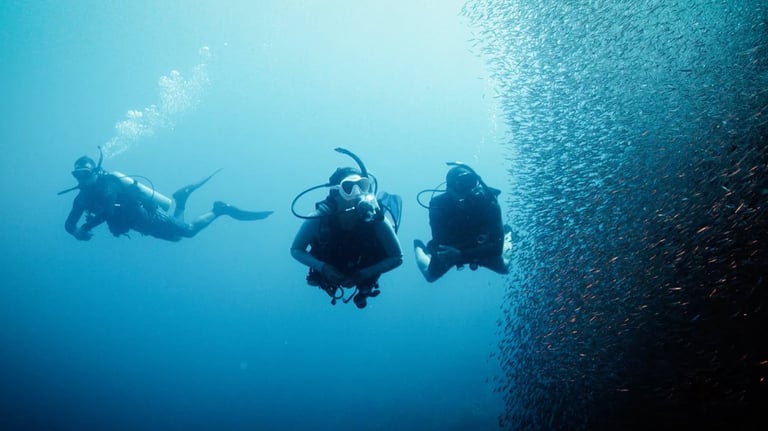

PADI SIDEMOUNT DIVER
Having scuba tanks on your back isn’t a requirement for exploring the underwater world. Many scuba divers have discovered the joy of mounting cylinders on their sides. Side mount diving gives you flexibility and streamlining options. Plus, you don’t have to walk with heavy cylinders on your back – just enter the water, clip them on, and go, after discovering Side mount diving, your dives will never be the same again. Join the extremely balanced family now!
Sound interesting?


Requirements
Age Requirement: 15 years or older
Course Prerequisites: PADI Advanced open water Diver (or qualifying certification)
Duration: 2 Dives in approximately 1 days
Equipment: Excluded
Diver Medical: Instructors, divemaster's, and dive shop staff are not physicians and should not be asked for medical advice, only medical professionals can give medical clearance to dive. Scuba diving requires a minimum level of health and fitness. Chronic health conditions, certain medications, and/or recent surgery may require you to get written approval from a physician before diving.
To avoid disappointment, download and review the Diver Medical Form to ensure you won’t need a physician’s approval to dive before enrolling in a scuba course.
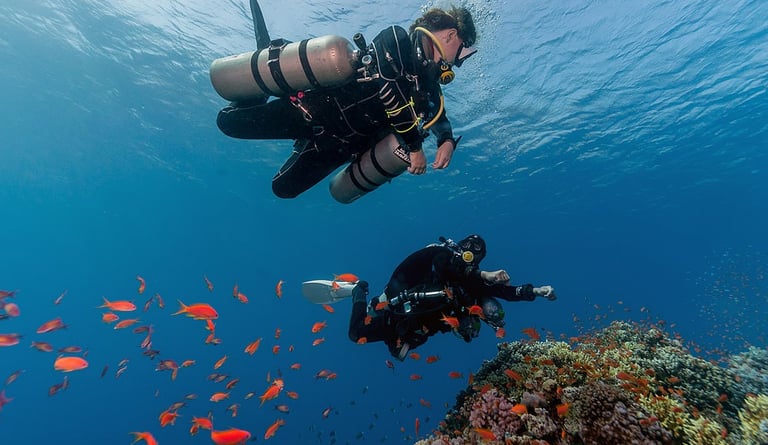

PADI PEAK PERFORMANCE BUOYANCY
Excellent buoyancy control is what defines skilled scuba divers. You’ve seen them underwater. They glide effortlessly, use less air and ascend, descend, or hover almost as if by thought. They more easily observe aquatic life without disturbing their surroundings. You can achieve this, too. The PADI Peak Performance Buoyancy Specialty course improves the buoyancy skills you learned as a new diver and elevates them to the next level.
Most novice scuba divers will say it was one of the most interesting courses they completed. Why not take this opportunity to fine-tune your buoyancy skills in the Red Sea, where protecting the delicate coral life is of the utmost importance
This certification counts towards the PADI master scuba diver rating.
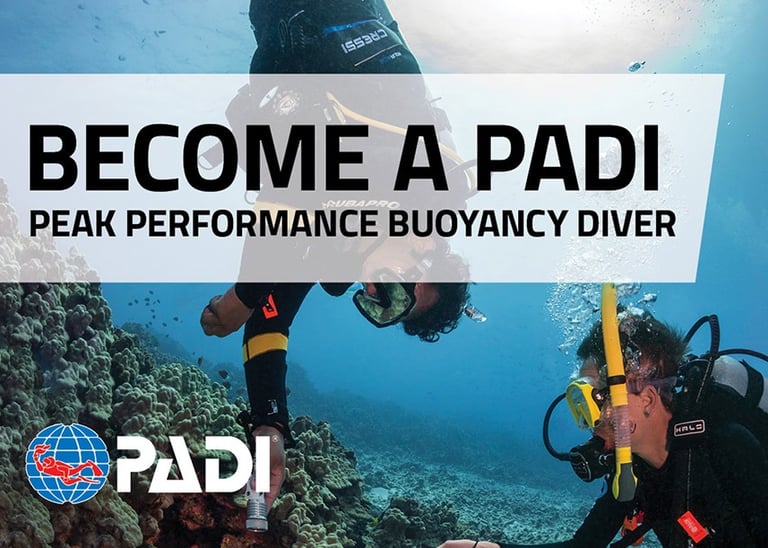

Requirements
Age Requirement: 10 years or older
Course Prerequisites: PADI Open water Diver (or qualifying certification)
Duration: Approximately 1 day
Equipment: Excluded
Diver Medical: Instructors, divemaster's, and dive shop staff are not physicians and should not be asked for medical advice, only medical professionals can give medical clearance to dive. Scuba diving requires a minimum level of health and fitness. Chronic health conditions, certain medications, and/or recent surgery may require you to get written approval from a physician before diving.
To avoid disappointment, download and review the Diver Medical Form to ensure you won’t need a physician’s approval to dive before enrolling in a scuba course.
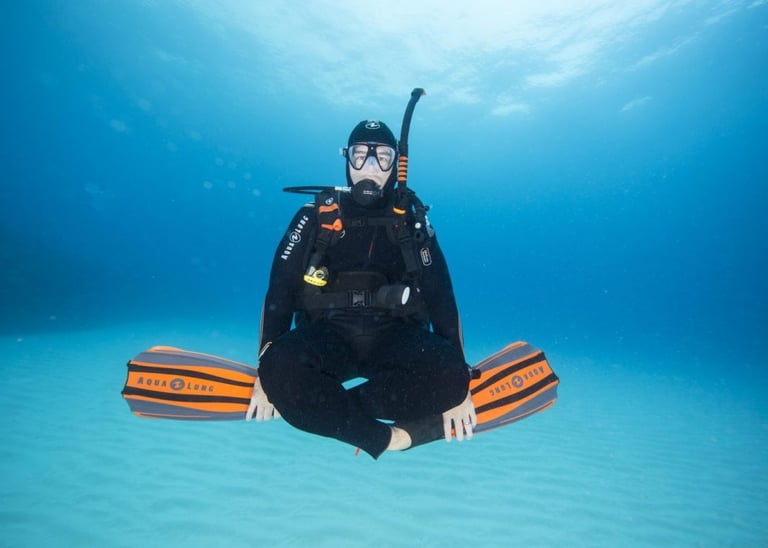

PADI PROPULSION VEHICLE
Soaring through the water with a dive propulsion vehicle is like flying through space – you will have to experience the thrill to believe it! PADI Dive Propulsion Vehicle Specialty Course with Dive the World You can explore more because you scooter faster than you can swim, but also your air lasts longer because you aren’t working as hard. If there’s a current running, your dive will be significantly longer than it would have been swimming.
Your DPV program will include 2 open water scuba dives, which may be conducted in only 1 day. The first dive allows you to practice basic vehicle handling skills and the second requires you to plan and perform a typical DPV dive within recreational diving limits.
You will receive a Diver Propulsion Vehicle Manual and watch the Diver Propulsion Vehicle video. Also, during the program, you’ll cover the knowledge and techniques used when diving with an underwater propulsion vehicle. Topics covered in the PADI Dive Propulsion Vehicle Specialty Course include:
The planning and organization of dives, and how to deal with potential problems and hazards of diving with a DPV, including lost-buddy procedures
Specialist equipment considerations including battery care, maintenance, and precautions Proper handling procedures for:
Avoiding propeller entanglement.
Dealing with vehicle failure or a runaway motor.
Performing proper descents and ascents.
Determining an appropriate turnaround point.
Techniques to avoid harming fragile marine life.
Techniques for entering and exiting the water with a DPV – whether from shore or from a boat.
The DPV elective dive from the Adventures in Diving program (Advanced Open Water Diver or Adventure Diver) may be counted toward the certification requirements of this specialty. And the program is a perfectly natural fit with the Enriched Air Nitrox Specialty course.
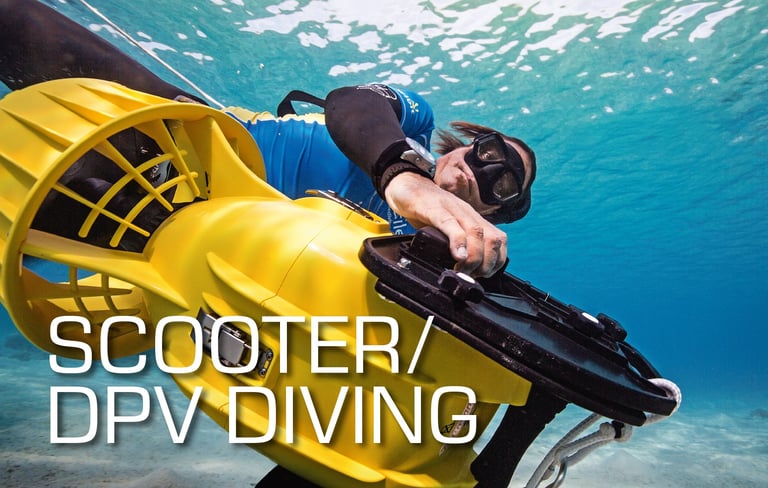

Requirements
Age Requirement: 12 years or older
Course Prerequisites: PADI Advanced open water Diver (or Qualifying certification)
Duration: Approximately 1 day
Equipment: Excluded
Diver Medical: Instructors, divemaster's, and dive shop staff are not physicians and should not be asked for medical advice, only medical professionals can give medical clearance to dive. Scuba diving requires a minimum level of health and fitness. Chronic health conditions, certain medications, and/or recent surgery may require you to get written approval from a physician before diving.
To avoid disappointment, download and review the Diver Medical Form to ensure you won’t need a physician’s approval to dive before enrolling in a scuba course.
